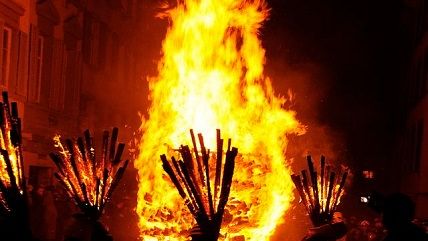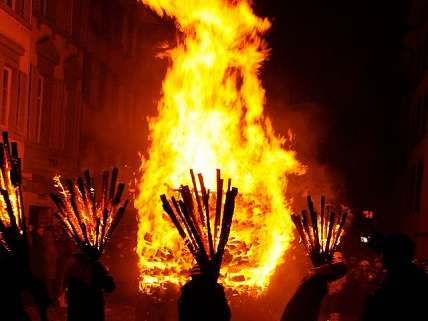Harassment Charges for Student Who… Told Joke [Gasp!]


No joke: A University of Oregon student was charged with five separate code-of-conduct violations for shouting a kind of funny, vaguely inappropriate four-word phrase out the window of a campus dormitory.
The female student was at a friend's room inside UO's Carson Hall when she decided to stick her head out the window and shout, "I hit it first," at a random couple on the street. The couple yelled back at her and then later reported the incident to the floor's residential advisor. The RA then made the student apologize.
The student contacted the Foundation for Individual Rights in Education, which shared these details because of what happened next:
That did not end the matter, however. On June 13, the student was shocked to receive a "Notice of Allegation" letter charging her with five separate conduct violations for her four-word joke. In addition to dubious allegations of violating the residence hall's noise and guest policies, UO charged the student with "[h]arassment," "disruption," and "[d]isorderly conduct." …
As FIRE noted, the Supreme Court has defined peer harassment in the educational setting as conduct "so severe, pervasive, and objectively offensive" as to effectively deprive the target of educational opportunities or benefits. The student's isolated, four-word comment plainly fails to meet these criteria.
Harassment and disorderly conduct for making a lame joke? That sounds crazy, although if you read the campus's absurdly broad anti-harassment policy, the student no doubt violated it:
"Harassment" means (a) Intentionally subjecting a person to offensive physical contact; Unreasonable insults, gestures, or abusive words, in the immediate presence, and directed to, another person that may reasonably cause emotional distress or provoke a violent response (including but not limited to electronic mail, conventional mail and telephone) except to the extent such insults, gestures or abusive words are protected expression;
Hurting another person's feelings may be wrong, but it isn't a criminal action, and it shouldn't be subject to sanction at any university where the First Amendment applies.
If the administration decides to proceed with these charges, the student has her choice of an "Administrative Conference," where decisions are final and "restorative justice" or "conflict resolution services" are likely outcomes, or a "Student Conduct and Community Standards Panel Hearing," where possible punishments include suspension and expulsion and the standard of proof is "more likely than not" to have occurred.
FIRE is insisting that UO drop the charges and alter its policies to comply with free speech requirements.
